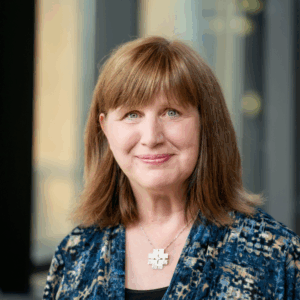Several years ago, I ran across a post on a website called “Parenting Beyond Belief.” This website (and a book of the same name) was dedicated to helping parents raise ethical children without relying on religion. The post was written by a mother seeking advice:
“We have been looking for nice, benign Bible story books to use for our kids and in our kids’ program at the humanist society. My husband complains that he can’t seem to find any that don’t make the assumption that god is real. They seem written for believers.”
Though not intended to be amusing, that last line makes me laugh. Imagine a children’s Bible story book written for believers! But the other line that strikes me as humorous is the one about “nice, benign Bible story books,” because anyone who has read even the first three or four chapters of the Bible knows that this book is anything but “nice” and “benign.”
Take the book of Genesis. Three chapters in, we find AdamThe first human God created. More and EveThe name of the first woman, wife of Adam. More cast out of the Garden of Eden, Adam blaming Eve and Eve blaming the serpentA serpent is described as the snake who tricked Eve into disobeying God in the Garden of Eden. Elsewhere a serpent appears in narratives relating to Moses, in the Psalms, and in Isaiah. Jesus invoked the image of serpents and snakes in his preaching; and... More. Four chapters in, we have an account of the first murder, brother killing brother. And the family dynamics do not get any better in the rest of the book. IshmaelThe son of Abraham and the Egyptian woman Hagar. More and IsaacSon born to Abraham and Sarah in fulfillment of God's promise. More are rivals, as are their mothers. JacobThe son of Isaac and Rebekah, renamed Israel, became the father of the twelve tribal families. More steals from EsauSon of Isaac and Rebekah and the older twin brother of Jacob. More and then runs away to escape his brother’s murderous rage. RachelLaban's younger daughter and Jacob's second wife. More and LeahLaban's oldest daughter and Jacob's first wife. More compete with each other for Jacob’s love. And, at the end of the book, Joseph brags to his brothers about his favored status and so they throw him into a pitA pit is a hole or a cavity in the ground. While a pit can be actual in the Bible, it is often a metaphor for separation or abandonment. The Psalms frequently speak about going down to the pit, a place from which - it... More and sell him into slavery.
These are not “nice” and “benign” stories. They are stories of sin and envy and violence. They are stories of what one might call “the problem of the brother.”1
The problem of the brother (or the sister) is that life isn’t always fair. And in the Bible, and especially in Genesis, it seems like God isn’t always fair. God chooses some (like Isaac and Jacob) to be in covenantA covenant is a promise or agreement. In the Bible the promises made between God and God's people are known as covenants; they state or imply a relationship of commitment and obedience. More with God while others (like Ishmael and Esau) seem to be left out. (Except, of course, they’re not left out of God’s care. Both Ishmael and Esau receive blessings and each becomes the ancestor of a nation.) But that unfairness leads to bitter feelings.
This problem of the brother is explored at some length in the story of Joseph (Genesis 37-50). After being sold into slavery by his envious brothers, Joseph (through many ups and downs) eventually rises to become second in command in Egypt. Then because of famine in Canaan, his brothers come asking for food from this Egyptian viceroy, but they do not recognize him.
Joseph toys with them. He accuses them of being spies, locks them up in prison, and then keeps Simeon in prison until they bring BenjaminA son of Jacob and tribe of Israel. More (his full brother and now his father’s favorite) back with them. When they comply, Joseph plants valuables in Benjamin’s bag and accuses him of being a thief. He then threatens to keep Benjamin as a slave and send the others back to their bereft father Jacob.
Why does he do all this? Perhaps he is seeking revenge, and who could blame him? But there is another explanation: That is, perhaps Joseph wants to test his brothers, to see if they have changed.
And here is where the story takes a significant turn. Because while the story has been focused primarily on Joseph, the “chosen” one, it now shifts its focus to JudahJudah was the name of Jacob's fourth son and one of the 12 tribes. More, one of the many older sons who is not their father’s favorite. How will the “unchosen” react this time? Judah was the one who suggested selling Joseph into slavery in the first place. Now he could do the same with the other “chosen” son, Benjamin, and bear no guilt for it. Will he respond to “the problem of the brother” by again getting rid of the brother?
No. Instead, Judah gives perhaps one of the most moving speeches in Genesis. Appealing to Joseph, though he doesn’t know it’s Joseph, Judah explains how much Benjamin means to their father, and then offers himself in Benjamin’s place:
“Now therefore, when I come to your servant my father and the boy is not with us, then, as his life is bound up in the boy’s life, when he sees that the boy is not with us, he will die; and your servants will bring down the gray hairs of your servant our father with sorrow to SheolIn the Hebrew Bible Sheol was the place where people, both good and bad, went when they died. While it was a place that might cause sorrow and anguish, it was not necessarily a cause for despair, for, as the psalmist said, God was even... More. For your servant became surety for the boy to my father, saying, ‘If I do not bring him back to you, then I will bear the blame in the sight of my father all my life.’ Now therefore, please let your servant remain as a slave to my lord in place of the boy; and let the boy go back with his brothers. For how can I go back to my father if the boy is not with me? I fear to see the suffering that would come upon my father.” (Genesis 44:30-34)
Judah has learned through many hard years that the problem of the brother is not solved through bitterness or violence. Instead, Judah’s love for his father and the promise he made to him overwhelm any envy he might feel for the chosen son, and he offers himself in the boy’s stead.
It is this love and devotion that finally move Joseph to reveal himself: “I am Joseph,” he cries, “I am your brother Joseph.” And this long-separated group of brothers weep together and talk with one another.
That scene moves me every time I read it. It is the beautiful culmination of a long story full of jealousy and betrayal, a story of the problem of the brother. But it ends with reconciliation. A similar scene plays out in Genesis 33, when Jacob himself, after seeing the face of God in the wrestling match by the River Jabbok, is reunited with his estranged brother Esau. And Jacob says, “Truly to see your face is like seeing the face of God” (Genesis 33:10). What a profound statement. In the face of the reconciled brother, one can see the face of God.
+++
The problem of the brother. The problem of the sister. It still happens today, of course. As we communicate too often through screens and stay in our ideological echo chambers, it is easy to feel anger and envy and even animosity for one another. Algorithms are designed to amplify our differences, because outrage is a driver for more clicks.
But that is not how we, as disciples of JesusJesus is the Messiah whose life, death, and resurrection are God's saving act for humanity. More, are called to act. The church is one of the few places in American society where we voluntarily associate with people with whom we deeply disagree. It might be easier not to, of course. Everything would be great if it was just me and Jesus, but I have to deal with you, and you have to deal with me.
And as we deal with one another, as we debate important matters, we would do well to remember these scenes of reconciliation between the estranged brothers of Genesis. These reconciliations don’t paper over real sin and harm. Jacob gives Esau some of his own wealth to make up for what he took from him. Joseph acknowledges that his brothers meant him harm, but “God intended it for good” (Genesis 50:20). He does not forget. They do not forget. [Indeed, they remember what they’ve done and they repentRepentance is a central biblical teaching. All people are sinful and God desires that all people repent of their sins. The Hebrew word for repent means to "turn away" from sin. The Greek word for repentance means to "change on'e mind," more specifically, it means... More of it (Genesis 42:21-22)]. But that past sin does not determine the future of the relationship. Forgiveness and reconciliation are possible. A new future is possible even with siblings who have harmed us or whom we have harmed.
So, are these stories from Genesis “nice” and “benign”? No, they are more important than that. They are stories of real sin and division. But they are also stories of something even deeper and more real: forgiveness and reconciliation, made possible by the graceGrace is the unmerited gift of God's love and acceptance. In Martin Luther's favorite expression from the Apostle Paul, we are saved by grace through faith, which means that God showers grace upon us even though we do not deserve it. More of God and through the power of the Holy Spirit. May that grace and power be made manifest in our own lives as we see in the faces of our reconciled sisters and brothers the very face of God.
Image credit: Jacob and Esau woodcut (1950) by Jakob Steinhardt. Detail of photo © The Israel Museum, Jerusalem; used by permission.
- This is a term that Walter Brueggeman uses in Genesis: Interpretation: A Bible Commentary for Teaching and Preaching. Atlanta: Westminster John Knox Press, 1982, xviii. ↩︎






